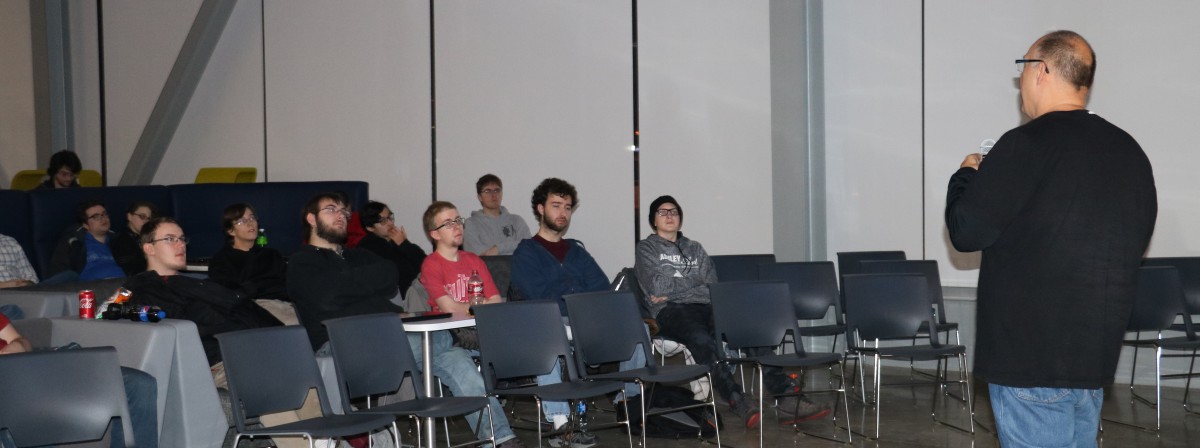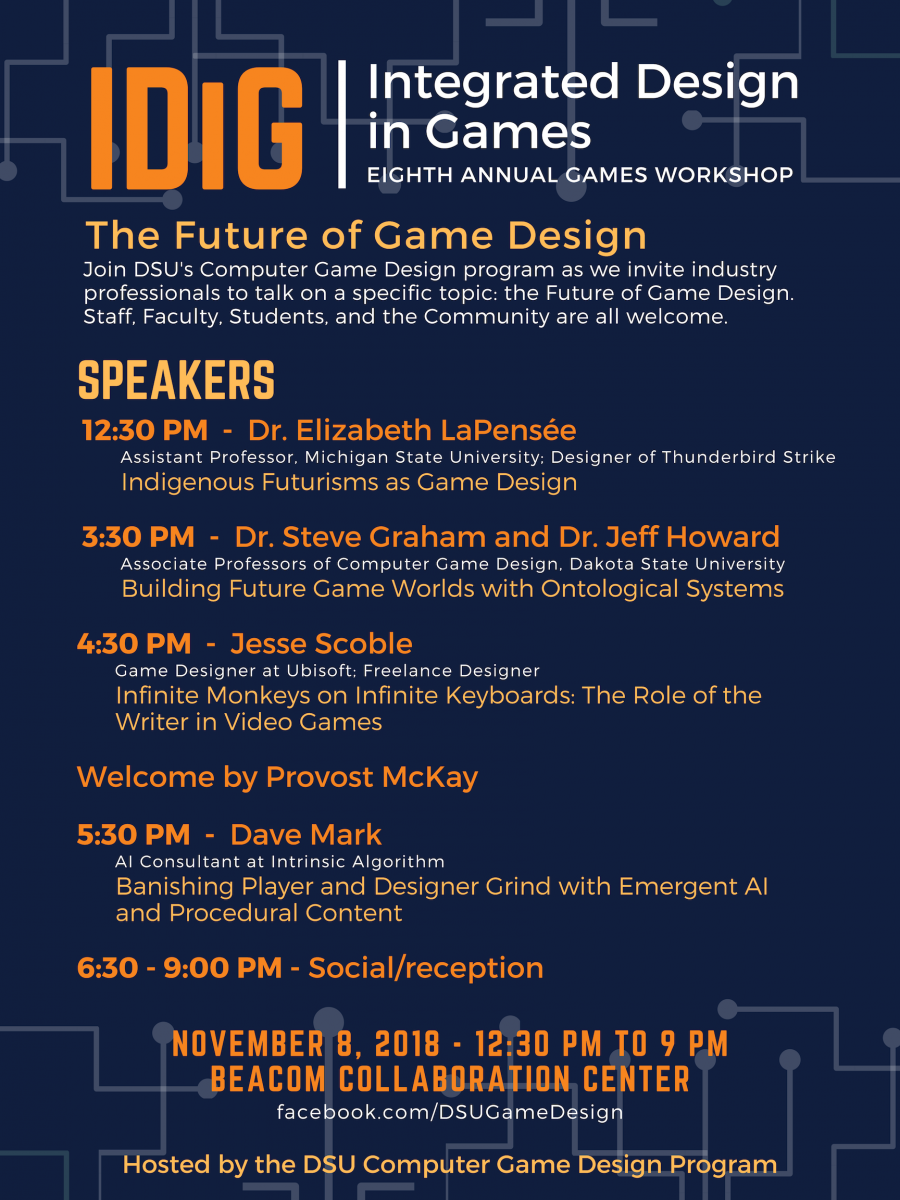IDiG to examine future of game design
October 31, 2018
“Games are a much bigger, wider subject than the vast majority of people know or understand,” said Dr. Steve Graham, associate professor of computer game design at Dakota State University, and IDiG workshop organizer.
To study the depth and breadth of game creation, DSU’s computer game design program sponsors an annual workshop called IDiG, open to staff, faculty, students and the community to learn more about the game design major and industry. This year’s workshop will be held Nov. 8.
“IDiG- stands for ‘Integrated Design in Games,’” explained Jeff Howard, associate professor of game development and design at Dakota State. “It’s about how all the parts of a game can fit together or be integrated to create a cohesive, unified experience.” This year’s theme is “the Future of Game Design,” and will feature four presentations on topics like ontology and indigenous futurisms.
Ontology is the metaphysics of being or existence. In video games ontology is used as a tool for representing and thinking about the world. According to Graham, ontology “allows a clear view, or X-ray vision, of the underlying substance of game worlds that might otherwise be obscured by surface details.” Howard and Graham will speak on building future game worlds with ontological systems.
Indigenous futurisms is a term coined by Grace Dillon, an associate professor in the Indigenous Nationals Studies program at Portland State University, that encourages indigenous authors and creators to reimagine science fiction from an indigenous perspective, as opposed to the often colonial perspective found in futuristic story telling.
Dr. Beth LaPensée, assistant professor at Michigan State University and game designer, will talk about game design as indigenous futurisms. A member of a Canadian Native American Tribe, she designs games that help preserve indigenous cultures and think of the future. LaPensée designed the game “Thunderbird Strike.”
Jesse Scoble, a game designer at Ubisoft and freelance designer who has worked on games like “Wizard 101” and "Assassin’s Creed,” will discuss the role of the writer in video games, and Dave Mark, AI consultant at Intrinsic Algorithm and author of “Behavioral Mathematics for Game AI,” will discuss banishing player and designer grind with emergent AI and procedural content.
In addition to game design topics, this annual workshop is important because it enables game design students to be exposed to the industry and its professionals, Graham said.
“The industry is overwhelmingly located on coasts and large urban centers like L.A., San Francisco, Seattle, Boston, New York City and Washington, D.C.,” Graham said. “There is no easy way for our students to interact with professionals in game design.”
Howard agreed with Graham, adding, “Beginning to network with people in their field will pay dividends in long-term for their careers. It also allows them to learn recent concepts and techniques to make better games.”
The DSU Computer Game Design Program sponsors the workshop. In years past it was paid for largely through support from the Game Club and Nanocon. However, this year an innovation grant from the office of the Provost/Vice President for Academic Affairs eliminated the need for the Game Club to contribute this year.
The event begins at 12:30 p.m. at The Beacom Institute of Technology, with speakers talking through 6:30 p.m., followed by a reception from 6:30 to 9 p.m.

During last year’s IDiG event a crowd gathered in The Beacom Institute of Technology to listen to a guest speaker from the game design industry.

